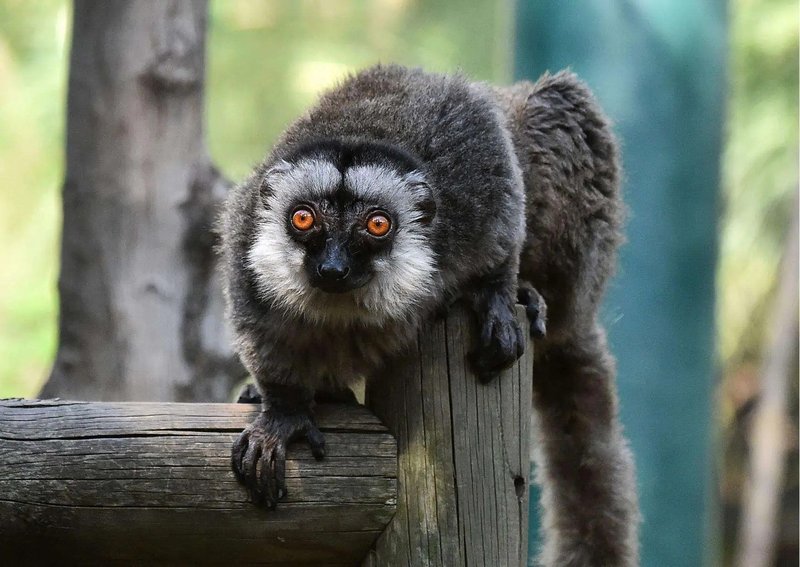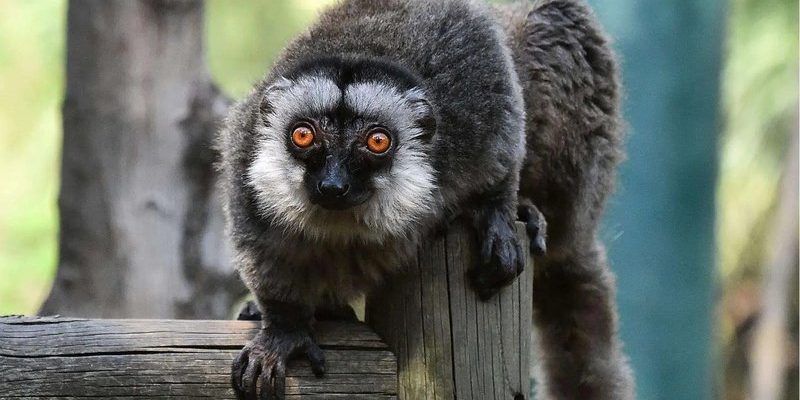
When we think about animal intelligence, we often picture dolphins or chimpanzees. Yet, lemurs bring their own set of smarts to the table. From problem-solving skills to social interactions, understanding their cognitive abilities can give us valuable insights into their behavior. So, let’s dive into the world of lemurs and explore just how smart they really are!
Understanding Lemur Intelligence
Lemurs might not be the first animals that come to mind when you think about brainpower. However, they show a range of cognitive skills that deserve recognition. Like us, lemurs live in social groups, which influences their intelligence. They’re constantly engaging with each other, which helps them develop essential social skills.
One way scientists assess intelligence is through problem-solving. Lemurs have been observed using tools—like sticks—to help them retrieve food. This is a clear indicator of their ability to think ahead and manipulate their environment. While they might not craft tools the way some other primates do, their resourcefulness showcases their cleverness.
Here’s the thing: lemurs also have excellent memory skills. They can remember where food sources are located, which is crucial for survival. This helps them thrive in their natural habitat, where food can be scarce. It’s not just about finding food; it’s about remembering where to look!
Social Behavior and Communication
Social interactions are a big part of lemur life. They live in groups called troops, which can consist of up to 30 members. Within these troops, lemurs exhibit a variety of social behaviors that highlight their intelligence. For instance, they use vocalizations to communicate important information, like alerts about predators or the location of food.
Young lemurs learn from older troop members, mimicking their actions and vocalizations. This learning process is a fundamental part of their upbringing. It’s kind of like how we learn from our parents or mentors—by watching and imitating.
You might be wondering how they actually communicate. Well, lemurs use a mix of sounds, scents, and body language. They have a whole array of vocal calls, from loud warnings to soft grooming sounds, that help them maintain social bonds and coordinate group activities. This rich communication system shows just how socially intelligent they are.
Problem Solving and Tool Use
When it comes to problem-solving, lemurs have shown some impressive skills. In various studies, researchers have created tasks that require lemurs to think critically. For example, lemurs have been tested on tasks that involve retrieving food rewards hidden in complex puzzles.
In these challenges, they often demonstrate their ability to strategize rather than just relying on trial and error. What’s remarkable is that they can adapt their methods based on what works best, showcasing a flexible approach to problem-solving.
Though lemurs don’t use tools as extensively as some other primates, they’ve been seen using their environment to their advantage. For instance, they’ve been observed bending branches or manipulating objects to access food. This creativity highlights their capabilities in adapting to challenges.
Memory and Learning Abilities
Memory plays a significant role in the survival of lemurs. These animals endure fluctuating food availability, which requires them to remember various locations where they’ve found food previously. Their impressive spatial memory helps them thrive in diverse environments, ensuring access to necessary resources.
Research has shown that lemurs can remember specific tasks and learn from experiences. For example, if a lemur successfully finds food in a specific area, it’s more likely to return to that spot later. This type of long-term memory is essential for foraging success.
Moreover, lemurs can learn through observation. When a young lemur watches an adult perform a task, it often picks up on the techniques used. This capability not only aids in survival but also strengthens social bonds within the troop, as they share knowledge and skills for mutual benefit.
Emotional Intelligence in Lemurs
Believe it or not, lemurs also exhibit signs of emotional intelligence. They form strong social connections with one another, which can influence their behavior and interactions. For instance, lemurs often groom each other, which serves as both a form of bonding and a way to reduce stress.
By observing the emotions of their troop members, lemurs can respond appropriately to various situations. If a fellow lemur is distressed, others may move closer or offer comfort through grooming. This sensitivity to social dynamics shows a level of emotional awareness that adds another layer to their intelligence.
Additionally, lemurs display playful behavior, especially among younger individuals. Play is vital not only for social bonding but also for learning essential skills. This playful nature is a key sign of their cognitive development, showing they’re not just surviving but also enjoying life.
Challenges to Lemur Intelligence
Despite their fascinating abilities, lemurs face significant challenges in the wild, many of which impact their overall intelligence. Habitat loss due to deforestation and human encroachment poses a severe threat to lemur populations. As their environments shrink, their ability to navigate and find food becomes increasingly difficult.
Moreover, the stress of living in fragmented habitats can affect their social behaviors and cognitive functions. When resources are scarce, troop dynamics may shift, leading to increased competition and reduced cooperation. This environment can hinder their learning and problem-solving abilities.
Conservation efforts are crucial for ensuring the survival of lemurs and their intelligence. By protecting their habitats, we can help maintain their social structures and cognitive functions, allowing them to thrive in the wild.
The Future of Lemurs and Their Intelligence
Looking ahead, it’s vital to continue studying and understanding lemurs to appreciate their unique intelligence fully. Research into their cognitive abilities can provide insights into primate evolution, animal behavior, and conservation strategies.
As we learn more about how smart lemurs are, we can better advocate for their protection and habitat preservation. Education and awareness can also help build support for conservation efforts, ensuring these charming creatures continue to thrive.
It’s clear that lemurs are more than just adorable faces—they are intelligent beings with complex social lives and remarkable cognitive abilities. By appreciating their uniqueness, we can help protect their future.
In conclusion, lemurs combine charm, social skills, and surprising smarts in a way that’s captivating. Whether it’s their problem-solving skills, emotional intelligence, or social interactions, these creatures remind us that intelligence comes in many shapes and sizes. So next time you see a lemur, remember there’s a lot going on behind those big eyes!

